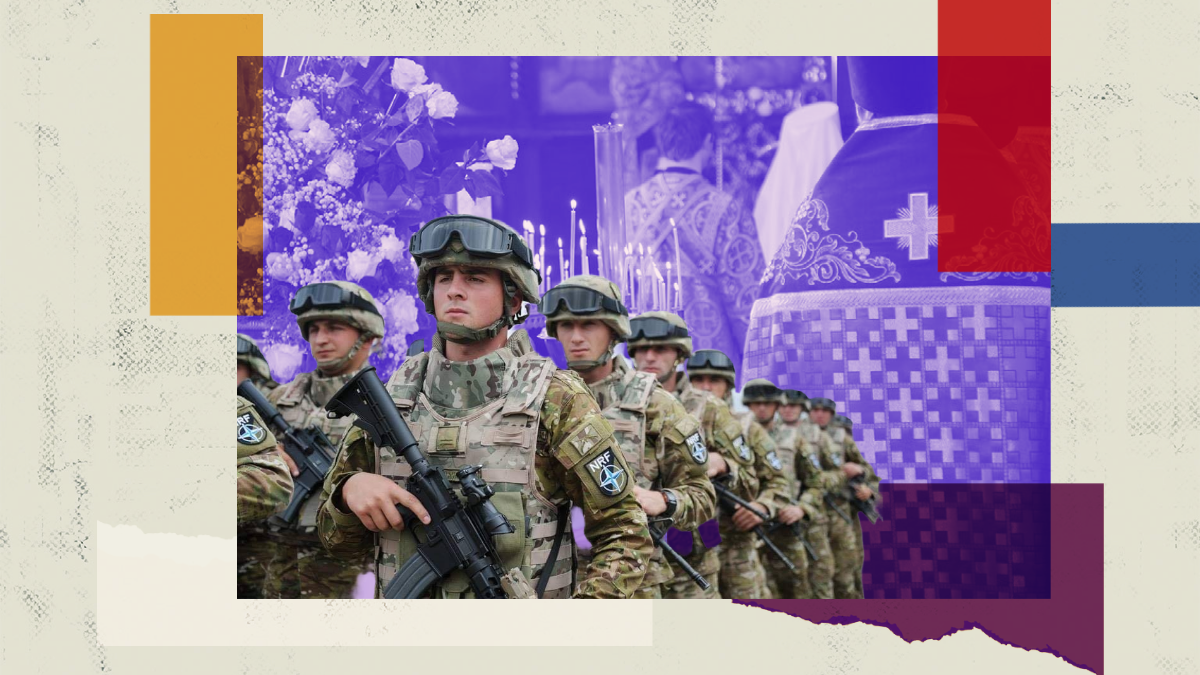SJC: Amendments to New Defense Code Exacerbate Discriminatory Approach
On November 28, the Social Justice Center (SJC), a local watchdog, released an assessment of the amendments in Georgia’s new Defense Code.
On September 21, the Georgian parliament adopted a new Defense Code. The legislative body rushing through the adoption of amendments to the new Defense Code that will “further aggravate the legal status of those conscripts who refuse military service on the grounds of freedom of belief, religious and conscience,” – SJC says. The amendments are due to go through two hearings on 29 November.
Concerns about the new amendments to the Defense Code
- Rules of appeal to the court on the refusal of military service and non-military alternative labor service
The current law allows 15 days to appeal the conscription order to the court. The timeframe for appealing the conscription order is the same for both military and non-military alternative labor service. Under the current law, the appeal temporarily suspends the conscription order.
However, if the amendments are adopted, the appeal to the court will not suspend the conscription order, so the individual will have to perform either military or non-military alternative service, whichever is applicable, along with the court proceedings.
The right to appeal is guaranteed by the Georgian Constitution. Therefore the SJC says that “appealing the issue by a conscript without a temporary suspension of the decision on conscription, will only be of a formality in nature and will not enable the practical realization of the rights.”
The watchdog also notes that although the draft law provides for special and short terms for consideration of cases in court, there is a mass tendency of delaying cases in courts (even if the law sets deadlines).
The initiators of the amendments state in the explanatory note that the administrative court procedure is generally a lengthy process that allows “fictitious religious organizations” to dishonestly use the file to help individuals avoid conscription. However, the SJC notes that such legislative changes should be based on serious reasoning, while the government’s justification is “superficial”. According to the SJC, the reasoning behind the proposed law reflects the result of confrontation with a particular political party rather than concern for human rights.
The SJC concludes: “The adoption of these legislative amendments will significantly harm the legal status and daily life of conscripts and will be another setback on the way to ensuring the inviolability of personal life and freedom of religion in Georgia.”
Problems with the existing new Defense Code:
The document emphasizes that the new Defense Code has already damaged the legal status of the people representing the non-dominant religious organizations, and it says that therefore the new amendments only exacerbate the existing problems.
- Alleged discriminatory attitudes toward non-dominant religious organizations
Prior to the adoption of the new Defense Code, a Georgian citizen could defer military service if he was ordained as a priest or studied at the theological seminary. Since the new code came into effect, the exemptions have been limited to priests of the Orthodox Church of Georgia. Accordingly, the SJC says: “The new regulation of the Defense Code clearly violates the principle of equality and significantly worsens the legal situation of priests representing other religious organizations.”
The SJC notes that the distinction between the representatives of the Orthodox Church and those of other religious denominations is not adequately justified. It also adds: “State could prevent possible individual cases of abuse of rights in a different way, and not with a blanket approach that once again creates and deepens the asymmetry of rights between religious organizations.”
“It is clear that the amendments provided by the Defense Code grossly violate the constitutional principle of equality and worsen the situation in the country in the direction of religious inequality,” – the SJC statement reads.
- Risk of indiscriminate processing of special categories of personal data relating to a person’s confession and priesthood
“Through the new Defense Code, the state has been given the authority to collect a special category of data related to a person’s religious beliefs,” – reads the statement. SJC notes that prior to the changes in law on Personal Data Protection, processing personal data related to a person’s confession was prohibited.
The SJC also emphasizes that the processing of personal data related to a person’s confession also violates International standards. Citing Article 9 of the European Union’s General Data Protection Regulation, the SJC says that “harmonizing of legislature,” as the Georgian law officially aims, cannot justify the processing of sensitive data.
“This regulation will create high risks of control over religious organizations, which is one of the main challenges in relations between non-dominant religious organizations and the state,” – SJC notes.
Conclusions and Recommendations
SJC concludes: “Amendments adopted in relation to mandatory military service of conscripts are discriminatory and constitute an unlawful interference with the right to private life. The recent package of amendments further deepens the existing legal gap and deprives the individual of the possibility of exercising the rights to effective means of legal protection.”
SJC calls on the Parliament of Georgia “to review the Defense Code and the necessity of adopting the amendments initiated on November 15, and to eliminate discriminatory approaches to the record of the law and the submitted amendments, which grossly violate the constitutional rights and freedoms of individuals and of religious organizations.”
Also Read:
- 12/10/2023 – President Signs New Defense Code into Law
This post is also available in: ქართული Русский
